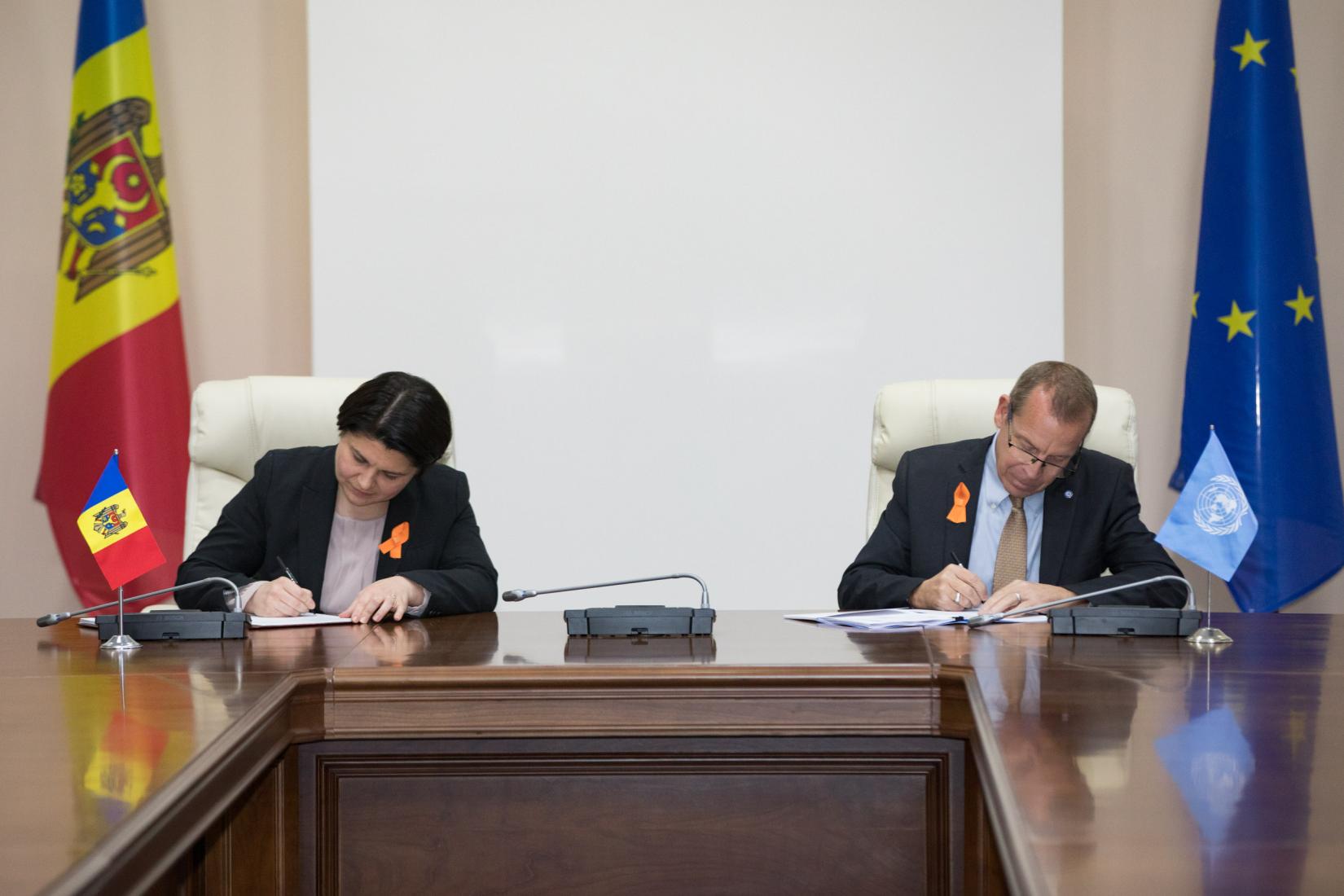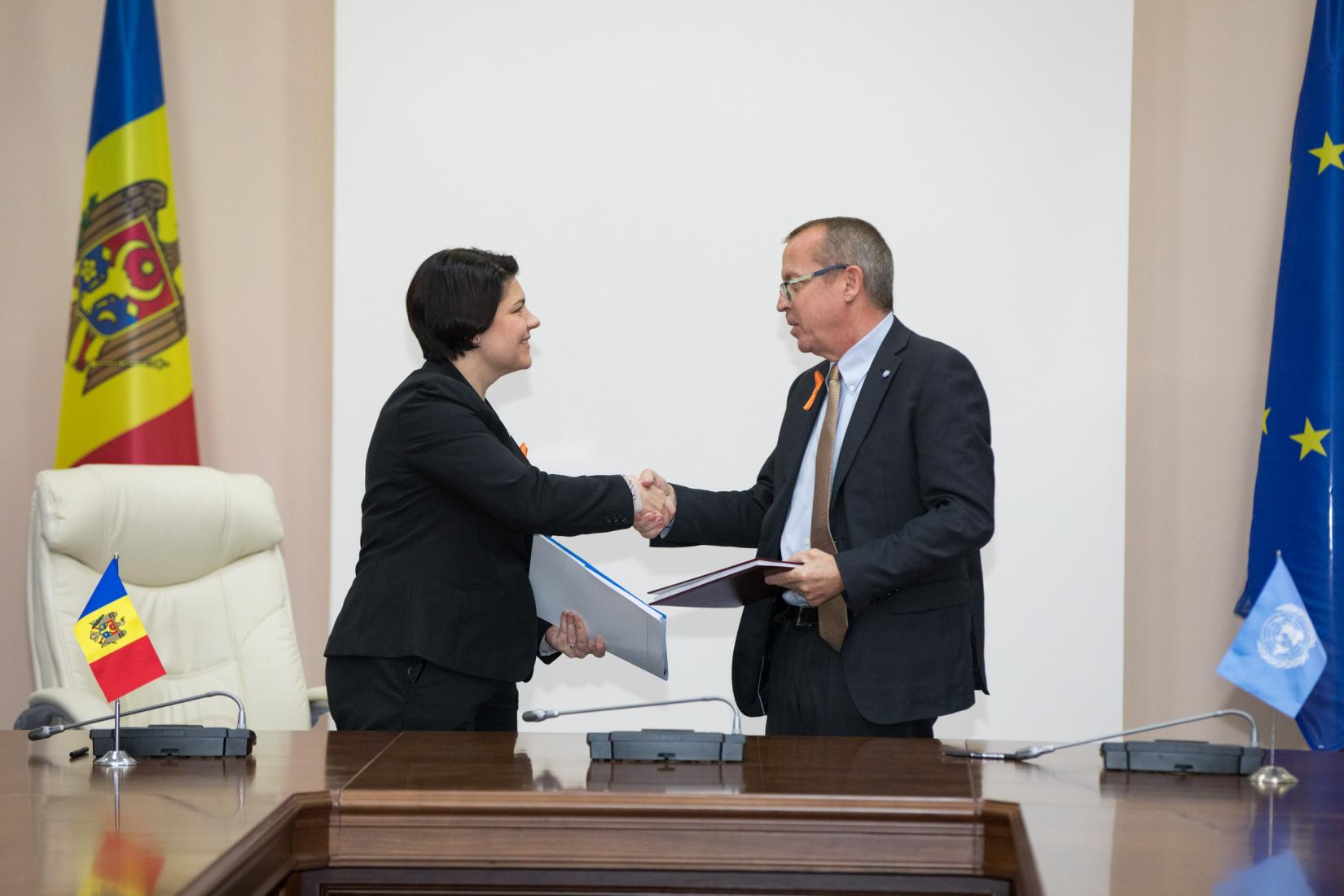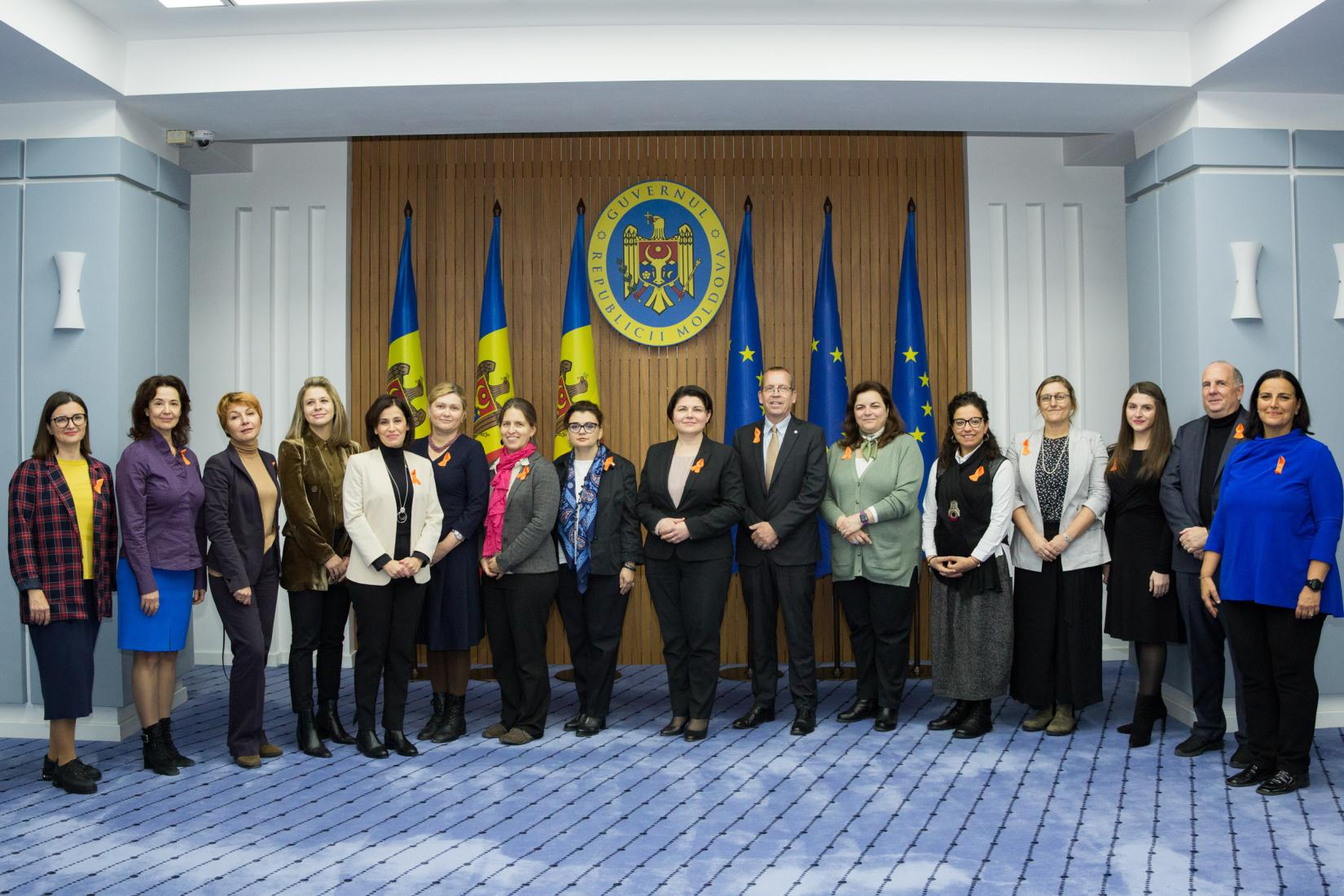The UN and the Government signed the Sustainable Development Cooperation Framework 2023-2027
24 November 2022
- The Government of the Republic of Moldova and the United Nations have signed the United Nations – Republic of Moldova Sustainable Development Cooperation Framework 2023-2027 (UNSDCF).

It represents a commitment to expand joint cooperation and scale up the results of the previous framework to help address the country’s development challenges and barriers to more inclusive social and economic development in line with the national priorities outlined in the National Development Strategy (NDS) “European Moldova 2030”.
Under the overall leadership of the UN Resident Coordinator, 24 United Nations entities in collaboration with the Government developed the Cooperation Framework. Its overarching vision is to achieve a country where people want to live, fully exercising their human rights and enjoying a better quality of life in a more inclusive and resilient society.
The Cooperation Framework puts a strong emphasis on the transformative nature of the Sustainable Development Goals (SDGs) being based on the premise that a better quality of life for all people of Moldova can only be achieved if the country’s prosperity is shared among all people and if the most vulnerable and marginalized are empowered to exercise their human rights and to participate meaningfully in all spheres of life.

Recognizing the complexity of the national development context, which faces challenges ranging from the economic crisis to energy insecurity, the United Nations system and the Government of Moldova, have defined four strategic priorities:
(1) Just and Inclusive Institutions and Equal Opportunities for Human Development;
(2) Participatory Governance and Social Cohesion;
(3) Enhanced Shared Prosperity in a Sustainable Economy;
(4) Green Development, Sustainable Communities and Disaster and Climate Resilience.
The implementation of the Cooperation Framework is expected to aid the achievement of results in several thematic areas – including education, health, food systems, migration, governance, decent work, social services, labour productivity, the competitiveness of the economy, energy, environment and climate change, connectivity and trade, and statistics – which will facilitate the integration of the Republic of Moldova into the European Union and help improve living standards, generating more than $200 million in grant-based financing.

The Cooperation Framework was developed based on broad consultations involving over 4.000 people, including young people, the diaspora and migrants, the general population (of which 50% represented vulnerable groups), representatives of Roma, persons living and affected by HIV, lesbian, gay, bisexual, transgender, queer and intersex (LGBTQI+) persons, persons in or released from detention, and unemployed persons.
In attention of the press:
The most vulnerable and discriminated against populations, as identified in the CCA, are: women survivors of violence; vulnerable women and children, particularly in rural areas; Roma and ethno-linguistic minorities; victims of human trafficking; vulnerable migrants; persons with disabilities; persons living with and affected by HIV; LGBTQI+ persons; people in detention; asylum seekers, refugees and stateless persons; older people; NEET youth; and small agricultural producers.
About the UN system in Moldova
A number of 24 agencies, funds, programmes, and other UN entities form the UN Country Team in the Republic of Moldova that support the development process of the country in line with national priorities. In 2021, the activities implemented by the UN agencies in the country amounted to about $50 million.

















